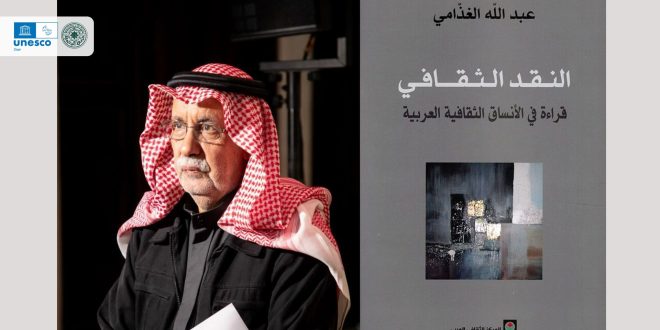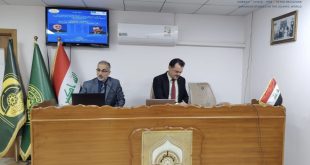Assistant Lecturer Alia Abdullah Abdul-Zahra, a member of the UNESCO Chair for Interreligious Dialogue, participated in the international online symposium titled “The Function of Cultural Criticism – and Whether Its Role Differs Fundamentally from Other Related Methodologies”, organized by the College of Arts at the University of Kufa, on Saturday, April 26, 2025.
The lecture was delivered by Saudi critic Dr. Abdullah Al-Ghathami, author of “Cultural Criticism: A Reading in Cultural Patterns,” and the symposium was moderated by Professor Dr. Khalid Kazem Hamidi, Head of the Department of Arabic Language at the College of Arts, University of Kufa, in the presence of a select group of postgraduate students, professors, and staff of the University of Kufa.
The symposium focused on the importance of cultural criticism and highlighted its major topics, including: the image of women in poetic records and its impact on poetic texts. It also revealed the functions of cultural criticism, which deals with context and text codes, showcasing examples from ancient poetic texts while considering these texts as cultural phenomena tied to identity, authority, gender, race, and other factors.
Additionally, the symposium discussed cultural criticism as the study and analysis of cultural productions (such as literature, cinema, arts, traditions, customs, and social discourses) aiming to uncover the hidden ideas, values, and authorities formed within them. The symposium emphasized that cultural criticism does not merely analyze texts or artistic works from an aesthetic perspective but goes beyond to explore the cultural, political, and social meanings concealed within them.
 UNESCO CHAIR For Inter-Religious Dialogue Studies in The Islamic World
UNESCO CHAIR For Inter-Religious Dialogue Studies in The Islamic World



